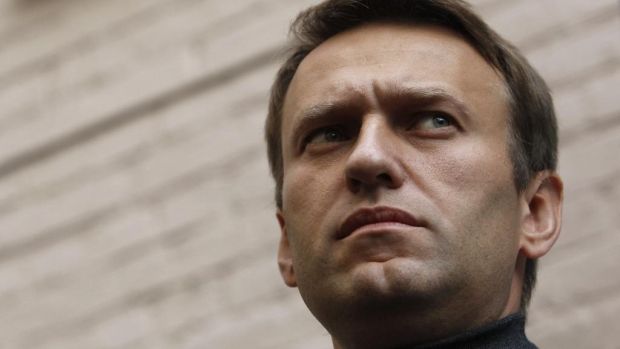
The European Court of Human Rights in Strasbourg condemned Russia on Sunday, February 5, in several proceedings for the arbitrary arrest of the Russian opposition politician Alexei Navalny, Deutsche Welle reported.
The judges ruled that Navalny had been arrested without sufficient justification at peaceful demonstrations and rallies in Moscow seven times between 2012 and 2014, and in some instances held for many hours. Navalny's rights to the freedom of protest and expression as well as his right to freedom had been repeatedly violated, they said. The judges also ruled that there had been a violation of his right to a fair trial, as the Russian courts had dismissed all Navalny's objections to the arrests. The court awarded the complainant damages of 64,000 euros.
Read alsoRussian opposition leader Navalny announces he will seek Russian presidency39-year-old Navalny is one of the most influential opposition politicians of the new generation in Russia. He studied law, making a name for himself as an anti-corruption fighter. His "Foundation for the Fight Against Corruption" regularly exposes the intrigues of Russian elites.
Navalny's reputation as a fearless critic of the powerful comes primarily from his blog, where he has been publishing critical research about the dubious business practices of big Russian businesses since 2007. It was Navalny who branded the governing party United Russia the "party of crooks and thieves." He became known outside Russia as the spokesman for the protests against the disputed parliamentary election in December 2011 and the re-election of Vladimir Putin to the presidency in May 2012.
Ongoing trial in Kirov
Navalny has already successfully sued Russia before the European Court of Human Rights in another case. In July 2013 a Russian court sentenced him to five years in a prison camp for the alleged embezzlement of moneys from a state-run timber business in the city of Kirov. A few hours after the judgment was passed, the public prosecutor's office demanded that Navalny be released until it was final. He was released the following day. In October 2013, a court in the city of Kirov unexpectedly suspended the sentence.
Nonetheless, Navalny took it to the court in Strasbourg, which criticized the suspended sentence in February 2016, calling it "arbitrary." Russia's Supreme Court responded by ordering that the proceedings be resumed. At the opening of the trial, Navalny declared that the proceedings were politically motivated. Their resumption, he said, meant he had to travel repeatedly from Moscow to the place of jurisdiction 900 kilometers away, which substantially restricted his political activity.
No participation in elections?
Critics suspect that the aim was to prevent Navalny standing as a candidate in elections. According to law, citizens who have been found guilty of serious crimes are banned from participating. As a result, Navalny was not allowed to participate in the elections to the State Duma, the lower house of the Russian parliament, in September 2016. His Progress Party wasn't allowed to take part in the elections either, because it had not been registered by the Russian authorities. Navalny describes it as the only real rival to the Kremlin party, United Russia.
In an interview with DW, Navalny said: "The problem is that the Kremlin won't allow any new parties to take part in elections. I'm not even allowed to register, either. I was only able to be a candidate on one occasion, and I achieved a good result. One in three people in Moscow voted for me. After that they didn't let me stand any more."
Navalny was a candidate in Moscow's mayoral election in September 2013. He lost to Putin's candidate, Sergei Sobyanin. But 27 percent for Navalny, from a standing start, was a sensation – it was twice as many as the polls had predicted.
Presidential candidacy
However, Navalny was given virtually no chance to capitalize politically on his success in Moscow. A second court case followed; Navalny and his brother Oleg were accused of embezzling money from the Russian representative of the French cosmetics company Yves Rocher. Oleg was jailed for three and a half years. Alexei was given the same sentence on probation.
Yet Navalny continued to defy the Russian justice system, as for example when he left his Moscow apartment to take part in a demonstration despite being under house arrest. He also cut off the electronic tag he had worn for almost a year and published a photo to this effect on Twitter. Navalny justified his actions by saying that a suspended sentence does not indicate house arrest.
Criminal trials notwithstanding, Navalny has declared his candidacy for the presidential election in 2018, saying that he has "every legal and moral right" to contest the Russian presidency.

